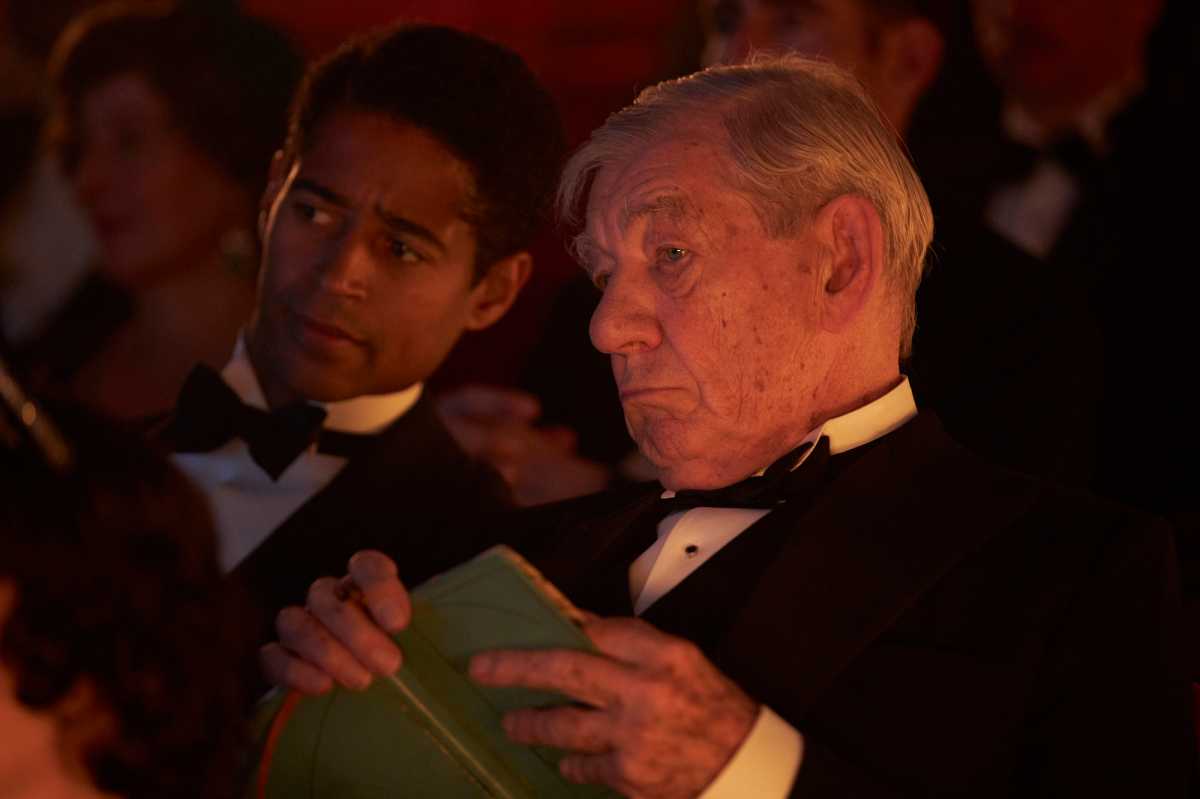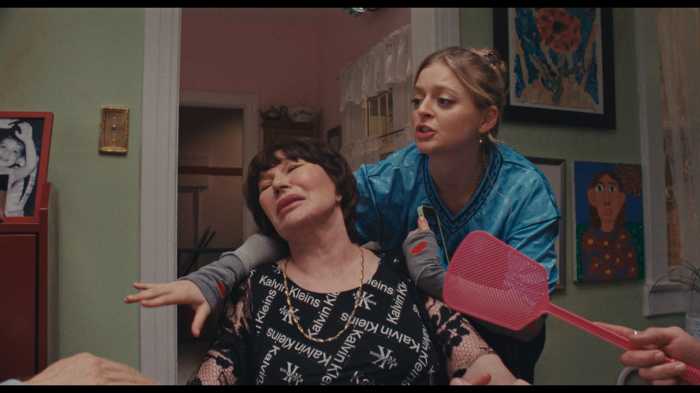It would be easy to dismiss the new film, “The Critic,” as being “untreatable sewage,” just as the title character, Jimmy Erskine (Ian McKellen), does when he reviews a play for “The Daily Chronicle.” This stagy film, directed by Anand Tucker, from a screenplay by Patrick Marber, who adapted Anthony Quinn’s book, “Curtain Call,” is bad, but it is not that bad.
To its credit, the film is competently made. It certainly looks good with burnished cinematography by David Higgs, handsomely appointed sets by Amanda George, and lovely period costumes by Claire Finley-Thompson. The actors speak their lines with conviction. And the film is edited in a way that the scenes follow one and reveal various storylines about homosexuality, blackmail, and murder in 1934 London. Nevertheless, “The Critic” is criminally boring. And, as Erskine insists, his job is to “discourage readers from wasting their wages on tripe,” so fair warning.
McKellen is perfectly cast as a vitriolic theater critic. His withering disdain is promising, but his character — a closeted gay man — is not nearly as lively as Waldo Lydecker (played by Clifton Webb) in the 1946 film, “Laura,” and viewers may crave more bitchiness from Erskine. Even when stage actress Nina Land’s (Gemma Arterton) mother, Annabel (Lesley Manville, wasted), tries, not too discretely, to convince Erskine that her daughter’s performance in a new play is wonderful. Erskine asks someone to escort Annabel out for “invading my table, besieging me with her opinions, and stealing my nuts!” It is almost high camp, but McKellen plays it rather straight, much to the film’s detriment.
Not only does the film not have any real juicy bon mots, but it does not have an especially clever plot. Erskine is highly critical of Nina, but he is asked by David Brooke (Mark Strong), the new owner of “The Daily Chronicle,” to be, well, “kinder.” This is probably because David has a crush on her. But “more beauty less beast” goes against Erskine’s nature; he thinks people read him because he is so nasty. Moreover, Brooke warns the critic that his is a “family paper” and Erskine’s “proclivities,” meaning his homosexuality, is unwelcome.
Erskine is seen paying young men to have trysts in the park, and Nina tries to use the fact that her harshest, but most important critic, likes rough gay sex against him — but without much luck. However, when Erskine and his male secretary, Tom Turner (Alfred Enoch), are caught kissing by the police, they are arrested. Erskine’s reputation is besmirched, and it costs him his job. Brooke gives the critic his notice, but this only prompts more bad behavior.
Hatching a scheme to regain his job, Erskine curries Nina’s favor by praising her latest performance and asking her to sleep with Brooke. This way, Erskine can blackmail his former boss and remain as the paper’s drama critic. The plan, however, is complicated by the fact that Nina is actually having an affair with Stephen Wyley (Ben Barnes), who, it is revealed, has a connection to Brooke.
As murders occur and as bodies pile up, “The Critic” feels flat and uninspired. Erskine is not especially likable, even if McKellen plays him with a mischievous twinkle. He makes a series of foolish errors that seem beneath him, and his own inflated ego may also be his downfall. “We are the blood-y pa-per!” he bellows pompously when there is talk of cutting expenses. One may wonder why he does not just retire instead of getting into criminal activities since he murders so much of what he sees on stage.
Brooke’s character also seems to be as dumb as a bag of hammers. His passion for Nina is like a schoolboy’s, and while he may be unhappy in his marriage, he seems to fall too easily into the trap being set. Even Nina complains about feeling “used” by Erskine as if she had not considered the ramifications of seducing Brooke so he can be blackmailed.
As such, “The Critic” does not allow viewers to root for anyone as everyone is cheating, lying, or murdering. The amorality would be fun if the film had any energy or suspense, but Anand Tucker draws things out so slowly that none of the scenes have much impact except as a sleep aid. When a character comes forward with some information about one of the killings, he is asked why he waited so long. Perhaps it was to stretch this thin story out to 95 minutes.
The film does raise some identity politics issues — Stephen mentions being Jewish; Tom Turner is a Black man — but like the treatment of homosexuality, they feel glossed over.
“The Critic” is glossy looking, but it is not very good. Viewers may just wonder what Erskine would have written about it and wish to have read that instead.
“The Critic” | Directed by Anand Tucker | Opening September 13 at the Angelika Film Center | Distributed by Greenwich Entertainment.





































